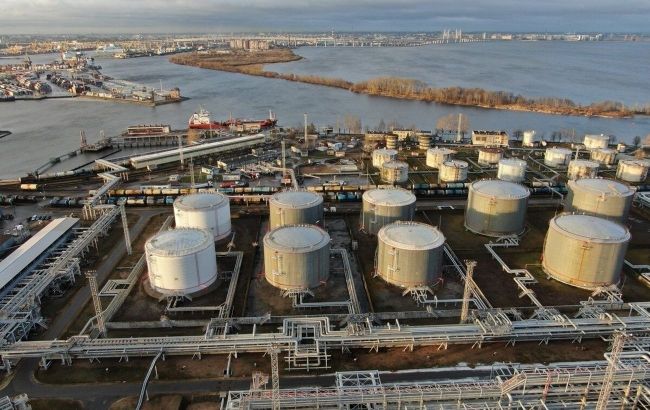Attacks on Russian refineries force Kremlin ban gasoline exports: British intelligence
 Photo: attacks on refineries forced the Kremlin to introduce a ban on gasoline exports (Russian media)
Photo: attacks on refineries forced the Kremlin to introduce a ban on gasoline exports (Russian media)
Ukraine's strikes on Russian oil refineries have significantly reduced Moscow's capabilities. That's why a ban on gasoline exports was imposed, according to the British Ministry of Defense on Twitter (X).
It is noted that on March 1, Russia imposed a six-month ban on gasoline exports to stabilize prices in the domestic market amid increasing demand. Government Resolution No. 243 of February 29, 2024, reinstates the export embargo, which initially lasted from September 21 to November 17, 2023.
"It is likely that Russia's refining capacity has been temporarily reduced by multiple Ukrainian uncrewed aerial vehicle strikes against refineries across Russia," the summary states.
According to intelligence, the embargo will alleviate pressure on suppliers and allow Russia to repair the plants. However, the repairs will take longer than usual as Western sanctions hinder the import of some necessary components.
"The Russian government will be particularly sensitive to rising prices for gasoline and other daily commodities in the run-up to the 15-17 March Russian presidential elections," the intelligence adds.
Attacks on refineries in Russia
It is worth noting that attacks by Ukrainian drones on Russian refineries are becoming increasingly systematic. Recently, a drone targeted one of the largest oil refineries in Yaroslavl.
RBC sources also reported that Security Service of Ukraine drones struck refineries in Tuapse, resulting in a powerful fire.
Additionally, Security Service of Ukraine drones accurately targeted the oil terminal Ust-Luga Oil, where fuel, including supplies for the Russian military, is processed.

